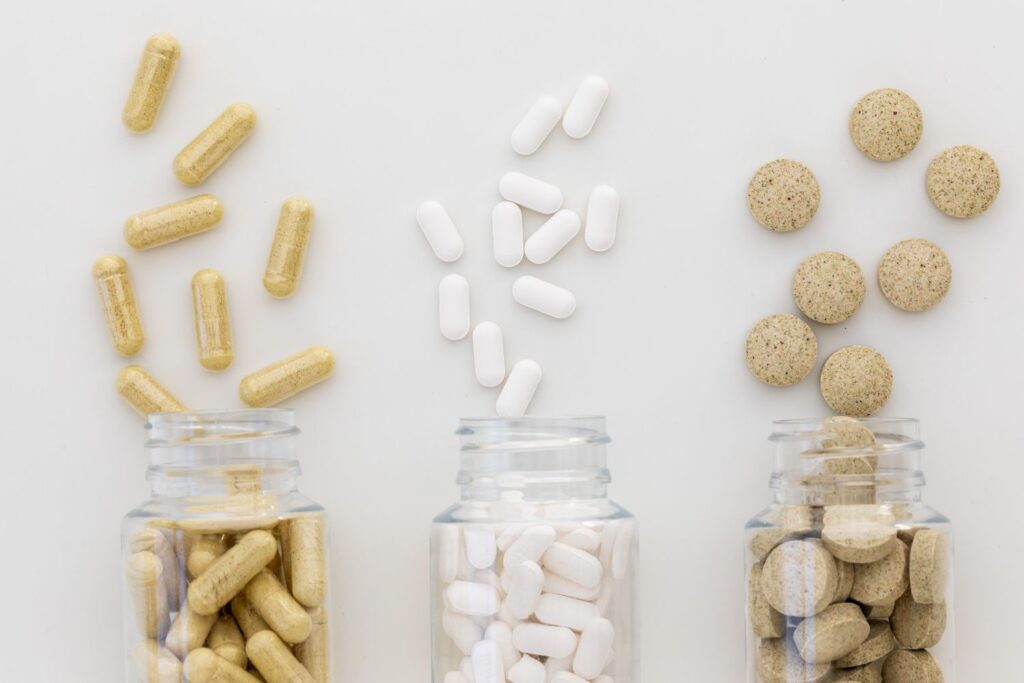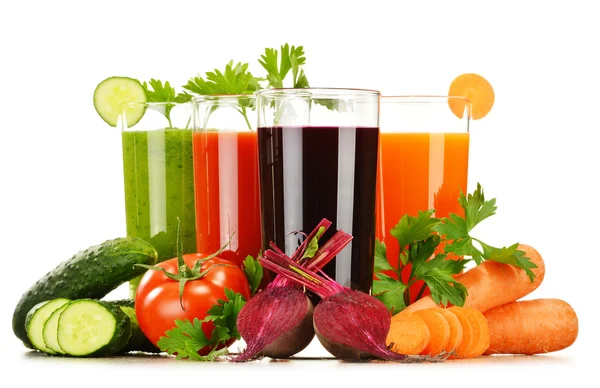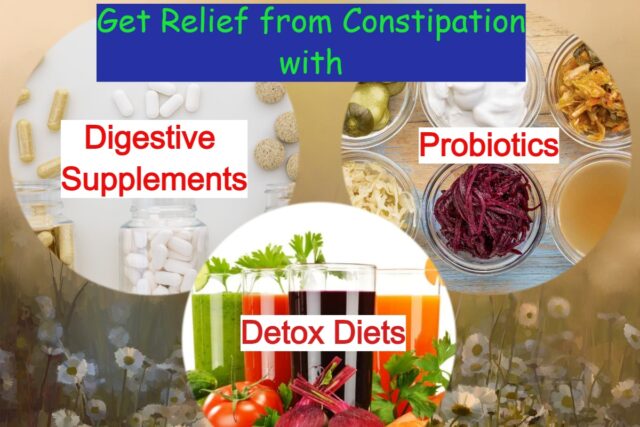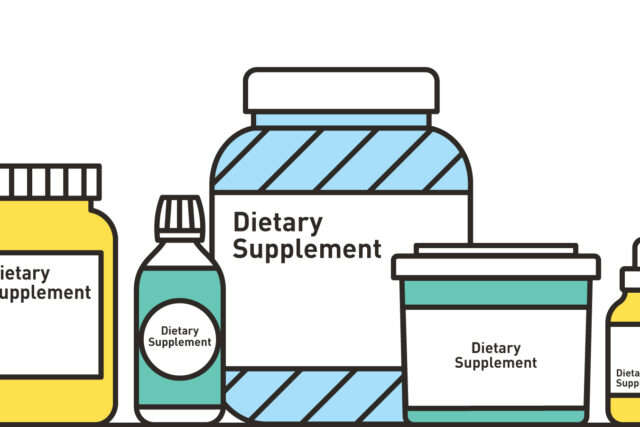You Can Get Relief from Constipation!
Constipation is a common gastrointestinal issue affecting millions worldwide. It can cause discomfort and bloating which can disrupt daily routines. While occasional constipation is normal, chronic constipation requires attention. Fortunately, there are various natural remedies, including digestive supplements, probiotics, and detox diets, that can help alleviate constipation and promote overall digestive health.
Table of Contents
Understanding Constipation:
- Constipation is a common gastrointestinal issue characterized by infrequent bowel movements or difficulty passing stool.
- It’s a widespread concern globally, affecting people of all ages, genders, and backgrounds.
- While occasional constipation is generally not a cause for concern, chronic or severe cases can significantly impact an individual’s quality of life.
The Factors that Contribute to Constipation:
- Low-Fiber Diet:
- A diet low in fiber, such as processed foods, refined grains, and insufficient intake of fruits and vegetables, can contribute to constipation.
- Fiber adds bulk to stool and helps it move smoothly through the digestive tract.
- Inadequate Fluid Intake:
- Dehydration can lead to hard, dry stool, making it difficult to pass.
- Consuming an adequate amount of water and other fluids is essential for maintaining proper hydration levels and softening stool.
- Lack of Physical Activity:
- Sedentary lifestyles can slow down digestion and reduce bowel motility.
- Regular exercise helps stimulate intestinal muscles, promoting more regular bowel movements.
- Medications:
- Certain medications, including opioids, antidepressants, antacids containing calcium or aluminum, and some antihistamines, can cause constipation as a side effect.
- Ignoring the Urge to Defecate:
- Ignoring the natural urge to have a bowel movement can lead to constipation.
- Over time, delaying bowel movements can disrupt the body’s natural rhythm and make the situation worse.
- Medical Conditions:
- Various medical conditions can contribute to constipation, such as irritable bowel syndrome (IBS), hypothyroidism, diabetes, neurological disorders, and colorectal problems.
Symptoms:
- Infrequent bowel movements (less than three times per week)
- Difficulty passing stool
- Straining during bowel movements
- The feeling of incomplete evacuation
- Abdominal bloating or discomfort
- Rectal bleeding or hemorrhoids due to straining
- It’s essential to differentiate between occasional constipation, which may resolve on its own or with simple lifestyle changes, and chronic constipation, which may require medical attention.
- Chronic constipation can lead to complications such as fecal impaction, hemorrhoids, or rectal prolapse.
- Managing constipation typically involves lifestyle modifications such as increasing fiber intake, staying hydrated, exercising regularly, and establishing healthy bowel habits.
- In some cases, over-the-counter laxatives or prescription medications may be necessary to relieve symptoms.
- Constipation can significantly affect an individual’s well-being and daily functioning.
- Understanding its causes, symptoms, and management strategies is essential for promoting digestive health and overall quality of life.
- If constipation persists or is accompanied by severe symptoms, it’s important to consult a healthcare professional for proper evaluation and treatment.
Digestive Supplements to Get Relief from Constipation:

- Fiber Supplements:
- Fiber is essential for maintaining regular bowel movements.
- Soluble fiber absorbs water, forming a gel-like consistency that softens stools, while insoluble fiber adds bulk to stool, aiding its passage through the digestive tract.
- Popular fiber supplements include psyllium husk, methylcellulose, and glucomannan.
- Magnesium:
- Magnesium helps relax muscles in the intestinal wall, promoting bowel movements.
- Magnesium citrate and magnesium oxide are commonly used supplements.
- However, excessive magnesium intake may cause diarrhea, so it’s essential to consult a healthcare professional for proper dosage.
- Digestive Enzymes:
- Digestive enzymes facilitate the breakdown of food, aiding digestion.
- Supplementing with enzymes like amylase, protease, and lipase can enhance nutrient absorption and alleviate digestive discomfort.
- Herbal Supplements:
- Certain herbs are known for their digestive properties and are commonly used in supplements.
- For example, peppermint may help alleviate symptoms of indigestion and irritable bowel syndrome (IBS), while ginger can aid in relieving nausea and promoting digestion.
- Other herbs like artichoke extract and dandelion root may support liver function and aid in detoxification.
- Digestive Bitters:
- Bitter herbs and botanicals like gentian, dandelion, and wormwood are traditionally used to stimulate digestive juices and promote optimal digestion.
- Digestive bitters are often consumed before meals to enhance appetite and support overall digestive function.
Probiotics to Support Digestive Health:
- Probiotics are live microorganisms that, when consumed in adequate amounts, offer numerous health benefits, particularly for gut health.
- These beneficial bacteria can be found naturally in certain foods like yogurt, kefir, and fermented vegetables, or they can be taken as supplements.
- Probiotics help maintain a healthy balance of bacteria in the gut, which is essential for digestion, immune function, and overall well-being.
- Research suggests that probiotics may also alleviate symptoms of certain gastrointestinal disorders, support mental health, and enhance skin health.

Incorporating probiotic-rich foods or supplements into your diet can contribute to a thriving gut microbiome and promote better health outcomes.
Detox Diets to Promote Overall Health:
- Detox diets aim to eliminate toxins from the body and promote overall health, including digestive function.
- While there’s limited scientific evidence supporting detox diets’ effectiveness for constipation, some proponents suggest certain approaches may help, such as:

- Increasing water intake:
- Proper hydration is essential for softening stools and promoting regular bowel movements.
- Consuming fiber-rich foods:
- Whole grains, fruits, vegetables, and legumes are excellent sources of dietary fiber, which aids digestion.
- Limiting processed foods:
- Processed foods high in sugar, fat, and artificial additives can disrupt gut health and contribute to constipation.
- Incorporating herbal teas:
- Certain herbal teas, such as peppermint, ginger, and dandelion, have mild laxative effects and may help relieve constipation.
- Practicing intermittent fasting:
- Fasting periods can give the digestive system a break and promote gut motility.
Conclusion:
Constipation can significantly impact quality of life, but with the right approach, it’s manageable. Incorporating digestive supplements, probiotics, and mindful dietary practices can help regulate bowel movements and improve overall digestive health. However, it’s essential to consult with a healthcare professional before starting any new supplements or diets, especially if you have underlying health conditions or are taking medications. By taking proactive steps to support your digestive system, you can experience relief from constipation and enjoy better overall well-being.



MOST COMMENTED
Animal-Based Proteins / Casein Protein / Dietary Protein / High-Protein Diets / Pea Protein / Plant-Based Proteins / Protein / Protein Deficiency / Protein Supplements / Proteins / Whey Protein / Whey Proteins
Is Protein Powder Safe for Teenagers and Children?
Animal-Based Proteins / Casein Protein / Dietary Protein / High-Protein Diets / Pea Protein / Plant-Based Proteins / Protein / Protein Deficiency / Protein Supplements / Proteins / Whey Protein / Whey Proteins
Unlock the Power of Proteins for Optimal Gut Health
Multivitamin
Total Health: Multivitamin for Active Lifestyles
Multivitamin
WellnessFusion: Complete Multivitamin Support
Dietary Supplement
Revitalize Your Health: The Magic of Red Yeast Rice Capsules
Foot care / Foot Health
Revitalize Your Foot Care Routine: Essential Tips for Optimal Foot Health
Foot Problem / Diabetics / Foot Health
Diabetics: Mastering Footwear Selection for Enhanced Foot Health and Ultimate Comfort
Exercises and Footwear Tips for Hammertoe Relief / Foot care / Foot Health / Foot Pain / Foot Problem / Hammertoes
Unlock Effective Exercises and Footwear Tips for Hammertoe Relief
Hammertoes / Foot Health / Foot Pain / Foot Problem
Unlock Relief: Essential Guide to Hammertoes Causes, Symptoms, and Treatments
Foot Problem / Foot Health
Revolutionize Your Recovery: Natural Remedies for Plantar Fasciitis – Fresh Home Keepers